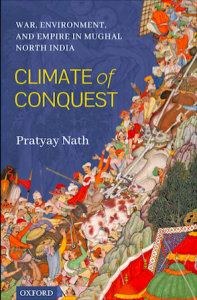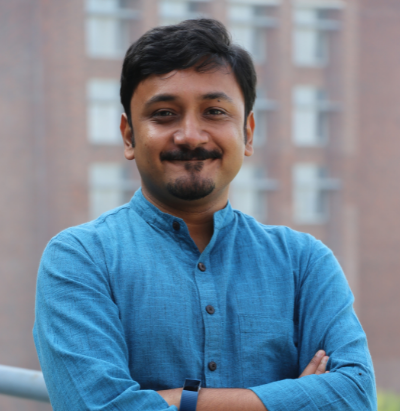Pratyay Nath is Assistant Professor of History, Ashoka University, Sonipat, India. He is a historian of the Mughal Empire, interested particularly in environment, warfare, and kingship. He writes in English and Bengali. His first book Climate of Conquest: War, Environment, and Empire in Mughal North India (Oxford University Press, 2019) offers a new interpretation of the Mughal Empire from the vantage point of war-making and environmental engagements. He is currently working on his second monograph titled War and the Region: Military Campaigns in the Making of the Mughal Empire. It is a study of Mughal campaigns and military techniques under Akbar and their role in the emergence of the empire.
He is editing a journal special issue on ‘Environment and Empire in the Early Modern World’ for JESHO and a reader on war, society, and culture in South Asia for Orient Blackswan Pvt. Ltd. He is co-editing three volumes – the first on periodisation of history and the meanings of ‘early modernity’ for Cambridge University Press; the second (in Bengali) on the evolution of academic debates on South Asian history for Ananda Publishers; and the third on the history of the horse in South Asia for Routledge.
Pratyay earned his PhD from Centre for Historical Studies, Jawaharlal Nehru University, New Delhi in 2016. Before this, he completed his MPhil in History from Jawaharlal Nehru University in 2011, Master’s in History from University of Calcutta in 2008, and Bachelor’s in History from Presidency College, Calcutta in 2006. He was awarded the DAAD-funded ‘A New Passage to India III’ fellowship at Georg-August Universität, Göttingen, Germany for the academic year 2013-14.
At Ashoka University, his teaching focuses on Mughal history, histories of medieval and early modern South Asia, and global histories of early modern empires, environment, warfare, and kingship. He has recently been awarded a DAAD-funded ‘Short-Term Guest Professorship’ by the Georg-August Universität, Göttingen. Prior to joining Ashoka, Pratyay taught medieval and early modern history at Miranda House, University of Delhi.







